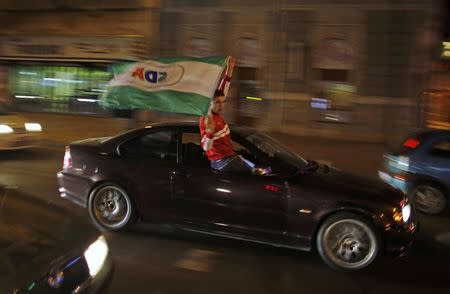Nationalists win Bosnia vote, face tough talks on power-sharing

By Daria Sito-Sucic SARAJEVO (Reuters) - Nationalists with opposing views of Bosnia's future secured the most votes in this month's general election, but none will be able to rule alone, raising the prospect of lengthy power-sharing talks and new delays in long-overdue reforms. More lost time could further destabilise Bosnia's fragile economy, which slowed further this year after devastating floods in May and badly needs fresh money from the International Monetary Fund to cover its growing budget gaps. The election commission confirmed on Monday that SNSD party of Bosnian Serb leader Milorad Dodik, the SDA of Bosniak leader Bakir Izetbegovic and the Croat HDZ have won the most votes for the national, regional and local representatives in the ethnically divided country. But Bosnia's complex political system, based on ethnic and regional quotas, means they cannot form governments alone or band together to form a stable national government. Each needs support from more moderate parties, which have yet to decide whether to join forces with any of them or remain in opposition. Analysts said there was little chance for a stable government that would move the Balkan country towards the European Union and revive its economy. Dodik narrowly won the race for president of the autonomous Serb Republic on repeated calls for its secession from Bosnia. Izetbegovic had advocated a strong, unified state, and HDZ leader Dragan Covic has called for the creation of a Croat entity within Bosnia. Now they pledge to move forward with reforms they had blocked for years. "Theoretically, they could" form new governments, said Kurt Bassuener, senior associate at the Democratization Policy Council, a think-tank. "But I see no evidence in the past behaviour or judging by their interests that they would initiate meaningful reform." The three nationalist blocks have largely dominated governments in Bosnia for the past eight years, dragging the country backwards, halting reforms and creating huge networks of political patronage using public-sector jobs. The Dayton peace accords, which ended Bosnia's 1992-95 war and divided the country into two autonomous regions, created an unwieldy system of ethnic power-sharing that has proven ineffective in peace, leaving Bosnia at the bottom of the Western Balkan hopefuls to join the European Union. (1$ = 0.7890 euro) (Reporting by Daria Sito-Sucic; Editing by Zoran Radosavljevic and Larry King)

